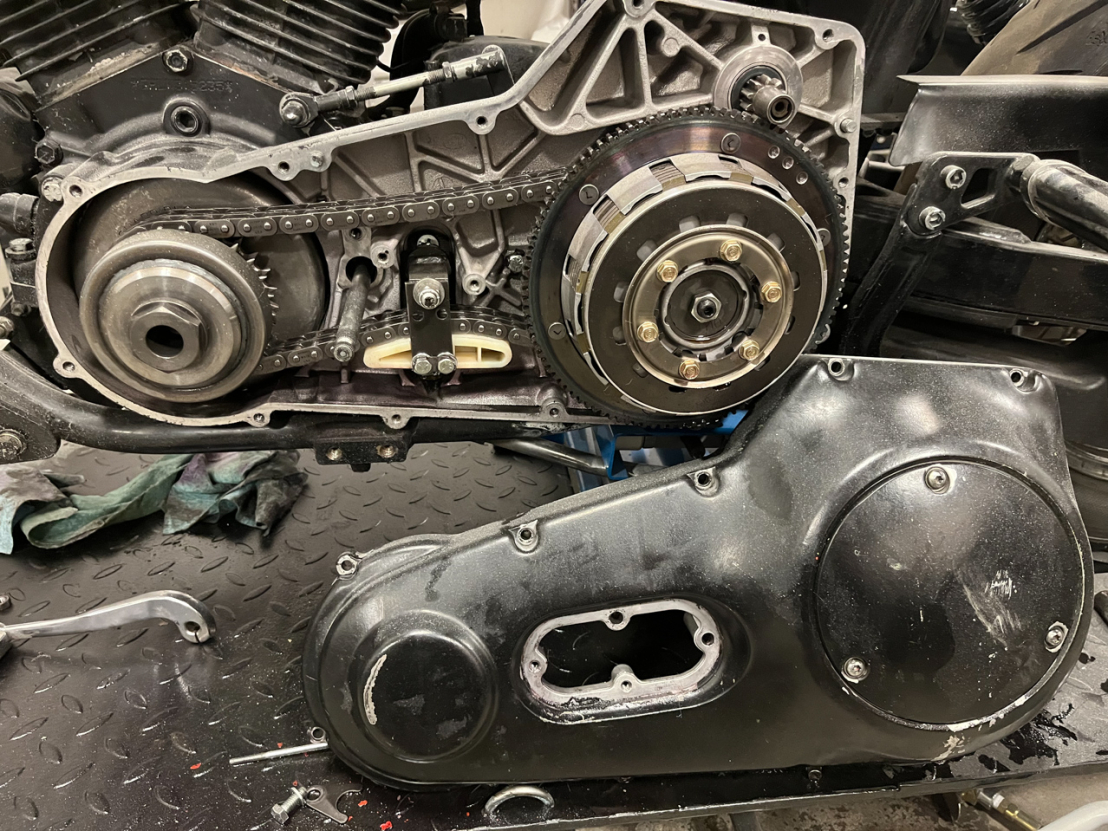The Ultimate Guide to Motorcycle Oil Changes: Frequency, Benefits, and More

The Ultimate Guide to Motorcycle Oil Changes: Frequency, Benefits, and More
Motorcycle maintenance is crucial for ensuring optimal performance and longevity. One of the most important aspects of maintenance is regular oil changes. But with so many factors to consider, it can be difficult to know when and how often to change your motorcycle oil. In this guide, we'll cover everything you need to know about motorcycle oil changes, including frequency, benefits, and signs that it's time for an oil change.
How often does a motorcycle need an oil change?
The frequency of oil changes for a motorcycle varies depending on several factors, such as the type of oil used, riding conditions, and the manufacturer's recommendations. On average, most motorcycle manufacturers recommend an oil change every 5,000 to 7,500 miles, or once a year, whichever comes first. However, if you frequently ride in harsh conditions or make long trips, you may need to change your oil more frequently. It's always best to consult your owner's manual for the manufacturer's specific recommendations.
How long can a motorcycle go without an oil change?
It's not recommended to go for an extended period of time without changing the oil in your motorcycle. Neglecting regular oil changes can result in reduced performance and increased wear on your engine. It's also important to note that riding a motorcycle without sufficient oil can cause severe damage and can be extremely dangerous. If you're unsure about how long you can go without an oil change, consult your owner's manual or a qualified mechanic.
Do you really need to change motorcycle oil every year?
Most motorcycle manufacturers recommend changing the oil once a year, regardless of the mileage. This is because over time, oil can break down and become contaminated, reducing its ability to lubricate and protect your engine. Changing the oil every year ensures that your engine stays lubricated and protected, even if you don't put a lot of miles on your motorcycle.
Does a motorcycle run better after an oil change?
Yes, a motorcycle will typically run better after an oil change. Fresh oil lubricates and cools the engine, reducing friction and heat, and improving performance. Additionally, removing contaminated oil from your engine helps to reduce the risk of engine damage and prolong its lifespan.
What are the signs that a motorcycle needs an oil change?
There are several signs that indicate it's time for an oil change, including:
- Low oil level: If the oil level in your motorcycle's engine is low, it's a sign that it's time for an oil change.
- Dark, dirty oil: If the oil in your engine appears dark and dirty, it's a sign that it's become contaminated and needs to be changed.
- Engine knocking or ticking: Engine knocking or ticking noises can indicate that your engine is not lubricated properly, and an oil change may be necessary.
- Reduced performance: If you notice a decrease in performance or acceleration, it may be a sign that your oil is no longer providing sufficient lubrication and protection.
Is it OK to use car oil in a motorcycle?
While car oil and motorcycle oil are similar, it's not recommended to use car oil in a motorcycle. Motorcycle engines are designed differently from car engines, and require specific viscosity, additives, and detergents to function optimally. Using car oil in a motorcycle can cause damage or reduce performance, so it's always best to use oil specifically formulated for motorcycles.
Do motorcycles need full synthetic oil?
The use of full synthetic oil in motorcycles is a matter of personal preference and depends on the type of riding you do. Full synthetic oil provides better protection in extreme conditions, such as high temperatures or frequent short trips, and can also extend the life of your engine. However, it's generally more expensive than conventional oil and may not be necessary for everyone. Consult your owner's manual or a qualified mechanic to determine the best type of oil for your motorcycle.
Is synthetic oil better for older motorcycles?
Yes, synthetic oil is often better for older motorcycles. As motorcycles age, their engines can become less efficient, and synthetic oil can help to reduce friction and heat, prolonging the life of the engine. Synthetic oil is also designed to remain stable in extreme conditions, which can be beneficial for older motorcycles that are often subjected to harsh conditions.
Can I use 10w40 instead of 10w30 in my motorcycle?
It's possible to use 10w40 instead of 10w30 in your motorcycle, but it depends on the manufacturer's recommendations and the type of riding you do. The "W" in 10w30 and 10w40 refers to the oil's viscosity, with the first number indicating the oil's flow at low temperatures, and the second number indicating its flow at high temperatures. If you frequently ride in extreme temperatures, you may benefit from using 10w40, as it has a higher viscosity and provides better protection in high temperatures. However, it's always best to consult your owner's manual or a qualified mechanic before making any changes to your oil.
Do motorcycles use the same oil for engine and transmission?
No, motorcycles do not use the same oil for the engine and transmission. The oil used in the engine and transmission serve different purposes and have different properties, and it's important to use the correct oil for each component. Most motorcycles use specialized gear oil for the transmission, while engine oil is formulated specifically for lubricating and protecting the engine. Always consult your owner's manual or a qualified mechanic to determine the correct oil for your motorcycle.
Regular motorcycle oil changes are an important aspect of motorcycle maintenance, providing numerous benefits for your motorcycle and ensuring its longevity. The frequency of oil changes depends on a variety of factors, including the type of motorcycle, the type of oil used, and the conditions under which it is ridden. By staying informed about the benefits and frequency of oil changes, you can make informed decisions about the care of your motorcycle and keep it running smoothly for many miles to come. By investing in regular oil changes, you can enjoy a safe, efficient, and reliable ride while prolonging the life of your motorcycle. Make sure to come to Infamous Motorworks for all your oil and fluid change needs.










Comments:0